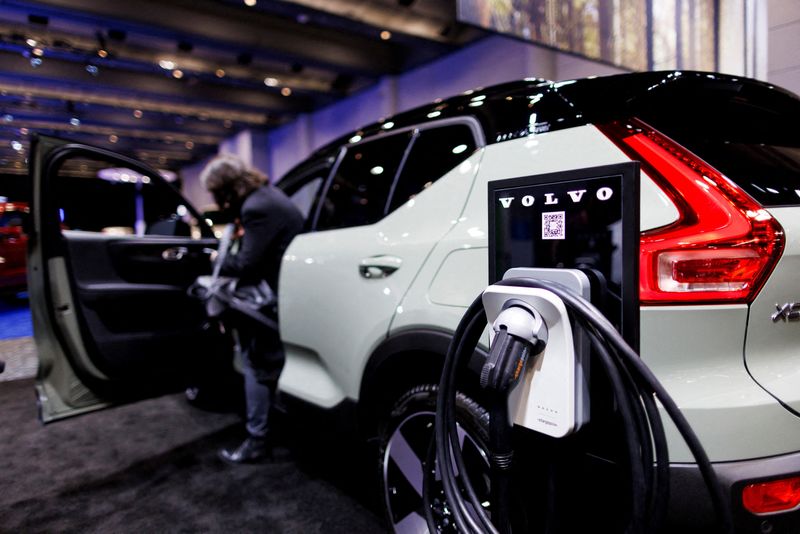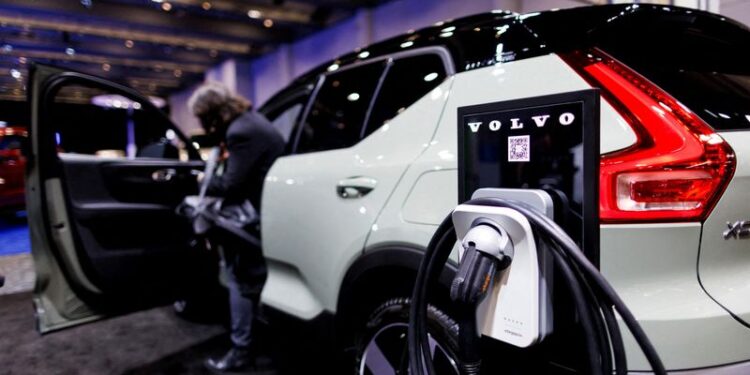By Nick Carey and Marie Mannes
(Reuters) -Swedish automaker Volvo (OTC:) Cars expects to outgrow the premium car market until 2026, it said on Thursday, but lowered its profitability target for that year and scrapped its sales goal.
The group, which is majority-owned by China’s Geely, lowered its target for operating profit margin excluding joint ventures and associates to 7-8% from above 8% and scrapped a sales goal of 550-600 billion Swedish crowns ($53.5-58.4 billion).
It cited “increased complexity especially in relation to global trade and tariffs”.
Major automakers have seen slowing demand for EVs due partly to a lack of affordable models and the slow roll-out of charging points, while also bracing for the effects of European tariffs on electric cars made in China.
Volvo Cars said separately that it will use a single software system backed by powerful chips from Nvidia (NASDAQ:) for all future models and will rely on “megacastings” to cut costs for electric cars.
In releases ahead of a planned investor event in Gothenburg, Volvo said that starting with its flagship electric EX90 model – which the Swedish automaker will begin delivering to customers this month – it will have a single “technology stack” for all car models.
Nvidia’s DRIVE Orin system-on-a-chip will help Volvo build better safety systems for its cars and constantly improve vehicles in circulation via over-the-air updates, Chief Engineering & Technology Officer Anders Bell told Reuters.
Bell also said Volvo will rely on “megacastings”, which like gigacasting use massive presses to make large single aluminium pieces of vehicle underbodies.
Using those large single pieces lowers costs as they replace many individual pieces that need to be welded together.

Bell said that through the use of megacasting, Volvo will also be able to greatly increase the use of recycled aluminium and reduce emissions throughout its supply chain.
($1 = 10.2815 Swedish crowns)







